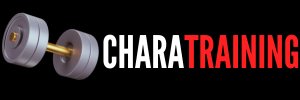
by Matt Weik, BS, CSCS, CPT, CSN
The rise of vegan diets among bodybuilders has got a lot of attention as athletes look for sustainable and healthy dietary options. The concept of vegan bodybuilding might seem like an oxymoron as it contradicts traditional bodybuilding norms, which focus on high animal protein intake.
A vegan bodybuilding diet strictly avoids animal products, emphasizing plant-based products. This diet has various fruits, vegetables, nuts, grains, and seeds to provide necessary nutrients for muscle growth and overall health.
The shift towards veganism in the bodybuilding community reflects an increasing awareness of the environmental and ethical aspects of diet choices. An increasing number of athletes are demonstrating that robust muscle gains are achievable without following animal-based products.
In this article, we will dive deeper and learn more about vegan bodybuilding, its health benefits, as well as how you can implement it.
Disclaimer: This article is for informational purposes only and is not meant to treat or diagnose any condition. It is recommended that you speak with your doctor before starting any exercise program, changing your daily nutrition, or adding any supplements to your regimen.
What is a Vegan Bodybuilding Diet?
Bodybuilders focus on building muscle through intense weight training. Proper nutrition is crucial for muscle growth. Experts suggest bodybuilders eat 1.6-2.2 kg of protein per kg of body weight. They also recommend consuming 10-20% more calories than usual, especially for beginners.
Traditionally, bodybuilders ate lots of animal-based foods due to their high protein content. Vegan bodybuilders face challenges because plant proteins are often lower quality (not complete proteins) when compared to animal proteins, which can affect their gains.
Vegan bodybuilders must plan their diets carefully to get enough protein, calories, and essential nutrients that may be lacking in plant-based diets. Their eating plans change during different phases, such as off-season and contest preparation, when fat loss becomes important.
6 Health Benefits of a Vegan Bodybuilding Diet
Bodybuilders face similar health risks as the general population, with steroid users potentially at higher risk for cardiovascular issues. A vegan diet may help offset these risks.
Below are several key benefits of a vegan bodybuilding diet:
1. Better digestive health
Vegan bodybuilding diets promote a diverse range of gut bacteria. While the full impact is unclear, a healthy gut microbiome likely improves overall health, especially digestive function.
2. Better cardiovascular health
Vegan bodybuilding diets typically contain less cholesterol and saturated fat. This may lead to lower blood pressure and cholesterol levels.
3. Better weight control
Plant-based foods are often lower in fat and calories than animal products. This can make maintaining a healthy weight easier for bodybuilders.
4. High in certain nutrients
Vegan bodybuilding diets are rich in fiber, which helps control blood sugar and appetite. They also provide plenty of plant-based nutrients like magnesium, potassium, and vitamins C and E.
5. Lower cancer risk
Plant-based diets are linked to lower rates of certain cancers, including breast, prostate, lung, and colorectal cancer.
6. Better brain health
Following a vegan bodybuilding diet may reduce the risk of cerebrovascular issues like stroke or cerebral aneurysms.
How to Implement a Vegan Bodybuilding Diet
While picking a vegan diet may seem quite simple, it takes a lot of planning to make sure you’re eating complete meals. The vegan bodybuilding diet has several staple foods on which many meals are based.
To start a vegan bodybuilding diet, it’s beneficial to plan out 5-7 days of meals to make sure you have all the ingredients, as many vegan recipes require several items.
If you are switching from a traditional diet, it may help to slowly include more vegan foods into your regular diet before switching over for good.
1. Fill up on high-protein plant foods
When following a vegan bodybuilding diet, it’s essential to get enough protein to boost your muscle-building goals. Considering that various vegan protein sources usually do not have all of the essential amino acids, higher amounts and a wider variety of such foods need to be consumed to regularly meet your needs.
Filling up on high-protein vegan foods, such as seitan, tofu, legumes, and quinoa, can help you meet your protein needs for optimal muscle gain. Vegan protein powders can also help you meet your protein needs by providing concentrated sources of protein surrounding workouts and throughout the day.
2. Make sure to eat enough fat
An adequate amount of fat in your diet is essential for muscle growth, as fats deliver twice the calories per gram compared to protein and carbs.
For off-season bodybuilders, the typical suggestion is to consume 0.5 grams of fat per pound (or 1 gram per kg) of body weight each day. For example, a male bodybuilder weighing 175 pounds (80 kg) would need approximately 80 grams of fat daily to meet these requirements.
3. Drink plenty of fluids
A vegan bodybuilding diet, which typically includes large amounts of fruits, vegetables, grains, and legumes, often results in a higher fiber intake. This sudden fiber increase may lead to discomfort like bloating, gas, or stomach pain.
One effective way to reduce these side effects is by staying well-hydrated. A useful guideline is to drink at least 1 ml of water for every calorie you consume to aid digestion and reduce fiber-related issues.

